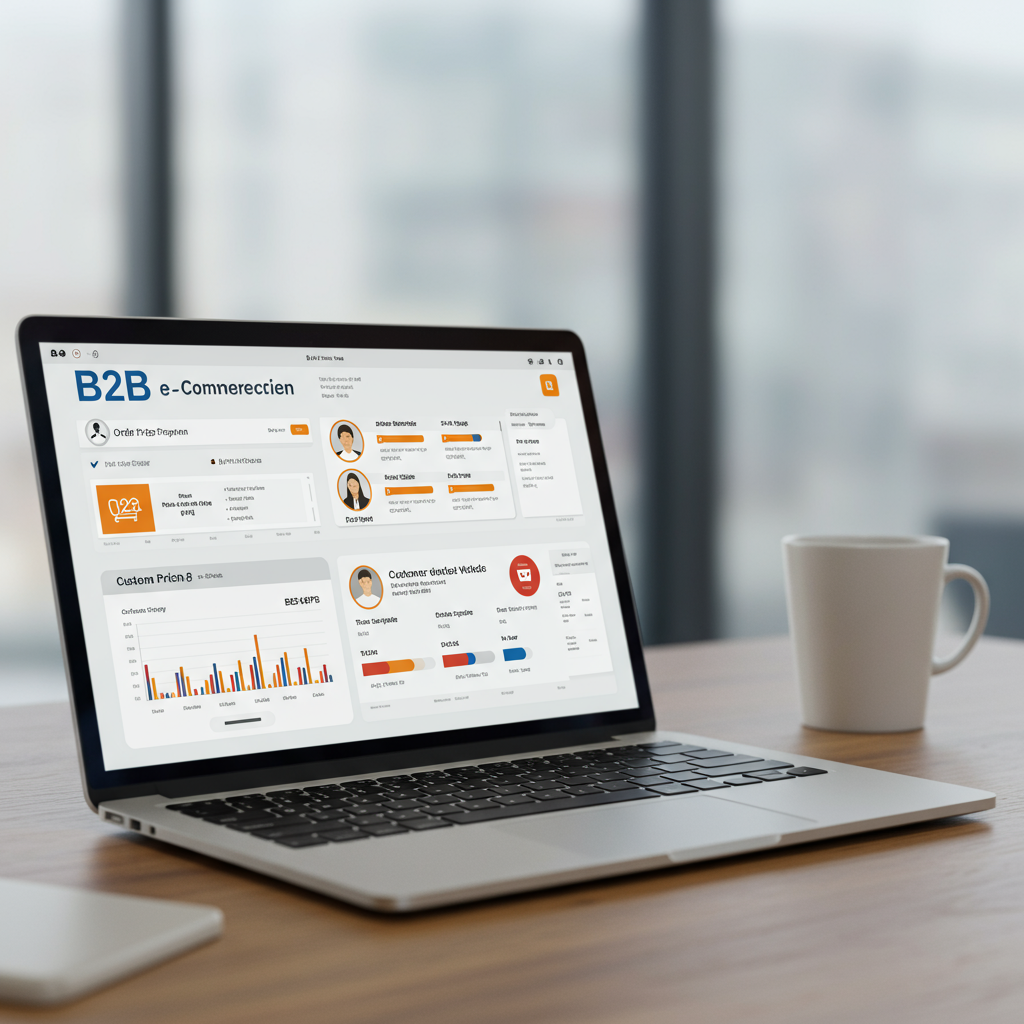My Guide to Effectively Selling to Other Businesses with Shopify’s Powerful Platform
As a merchant, I’ve seen firsthand how the landscape of commerce is constantly evolving. While direct-to-consumer (DTC) often grabs the headlines, the business-to-business (B2B) sector is undergoing an equally profound digital transformation.
For years, B2B sales relied heavily on traditional methods: phone calls, faxes, sales reps, and complex, often manual, ordering processes. But today, B2B buyers expect the same seamless, intuitive online experience they get from their personal shopping.
This is where Shopify, a platform many associate primarily with DTC, truly shines for B2B. I’m here to share my insights on how you can leverage Shopify to build a robust, efficient, and scalable B2B e-commerce operation.
My journey into B2B on Shopify began when I realized the immense potential for streamlining our wholesale operations. We were spending countless hours on manual order entry, managing disparate spreadsheets, and dealing with inconsistent pricing.
The first step I took was to understand Shopify’s core B2B capabilities. While standard Shopify plans offer some basic features, for serious B2B operations, especially those with complex pricing or large catalogs, Shopify Plus is often the go-to solution.
Shopify Plus provides a dedicated suite of B2B tools designed specifically for wholesale and business-to-business selling. These aren’t just add-ons; they’re integrated functionalities that transform your store into a powerful B2B portal.
One of the most impactful features I’ve utilized is the ability to create distinct company profiles. This allows me to associate specific customers with their respective companies, ensuring that all orders and interactions are properly attributed.
Within these company profiles, I can set up custom pricing. This was a game-changer for us. No more manual adjustments or separate price lists; I can assign unique price lists to different companies or customer segments.
Imagine offering tiered pricing based on volume, or special discounts for loyal partners – all automated. This level of customization significantly reduces errors and frees up my sales team to focus on relationship building rather than data entry.
Payment terms are another critical aspect of B2B that Shopify Plus handles elegantly. I can offer net 30, net 60, or other custom payment terms directly within the checkout process, providing flexibility for our business clients.
This capability integrates seamlessly with our accounting systems, making reconciliation much smoother. It’s about providing the convenience B2B buyers expect, while maintaining control over our cash flow.
Quick order lists and reorder functionality have also been invaluable. Our B2B customers often purchase the same items repeatedly. With these features, they can quickly build large orders or reorder past purchases with just a few clicks.
This dramatically improves the customer experience and reduces the time they spend on ordering, which translates directly into higher satisfaction and repeat business for us.
Beyond the native Shopify Plus features, I’ve explored the vast Shopify App Store. There are numerous apps specifically designed to enhance B2B functionality, from advanced wholesale pricing apps to robust ERP and CRM integrations.
Integrating our Shopify store with our existing Enterprise Resource Planning (ERP) system was a significant undertaking, but absolutely worth it. It ensures inventory levels are accurate, orders flow smoothly to fulfillment, and customer data is synchronized across all platforms.
When setting up your B2B store, my advice is to start with a clear understanding of your B2B customer’s journey. How do they discover you? What information do they need? What are their purchasing habits?
Your product catalog needs to be meticulously detailed. B2B buyers often require more technical specifications, bulk packaging information, and compliance certifications than DTC customers. High-quality images and comprehensive descriptions are paramount.
I also recommend implementing a customer account approval process. Unlike DTC, where anyone can buy, B2B often requires vetting new accounts to ensure they are legitimate businesses and qualify for wholesale pricing.
This can be managed manually or through apps that automate the approval workflow, sending notifications and granting access to specific price lists once approved.
For pricing, don’t just think about discounts. Consider volume tiers, minimum order quantities (MOQs), and even custom quotes for large or unique orders. Shopify’s B2B features allow for this complexity.
Payment options should extend beyond credit cards. I’ve found that offering purchase orders (POs), bank transfers, and even credit lines through third-party integrations can significantly broaden your appeal to B2B clients.
Shipping for B2B is often more complex than DTC. You might deal with freight shipping, Less-Than-Truckload (LTL), or specific carrier requirements. Ensure your shipping settings can accommodate these nuances, potentially using apps for custom rate calculations.
Marketing for B2B also differs. While SEO is still crucial, your content strategy should focus on solving business problems, providing industry insights, and showcasing your expertise. Email marketing becomes about nurturing long-term relationships.
Once your store is live, effective order management and customer service are key. B2B customers often have dedicated account managers and expect prompt, knowledgeable support for complex inquiries.
I regularly review our analytics to understand B2B purchasing patterns, identify our most valuable customers, and optimize our product offerings. Data-driven decisions are just as vital in B2B as they are in DTC.
The benefits I’ve personally experienced from moving our B2B operations to Shopify are immense: increased efficiency, reduced manual errors, improved customer satisfaction, and a scalable platform that can grow with our business.
It has allowed my team to focus on strategic initiatives and building stronger relationships, rather than getting bogged down in administrative tasks.
What do you think about this article? I’m always keen to hear other merchants’ perspectives and experiences with B2B e-commerce.
In conclusion, Shopify is no longer just for small DTC brands. With its robust B2B capabilities, especially through Shopify Plus, it offers a powerful, flexible, and user-friendly solution for businesses looking to digitize and scale their wholesale operations.
I encourage you to explore how Shopify can transform your B2B sales, just as it has transformed ours. The future of B2B is digital, and Shopify is an excellent partner to navigate that future.






